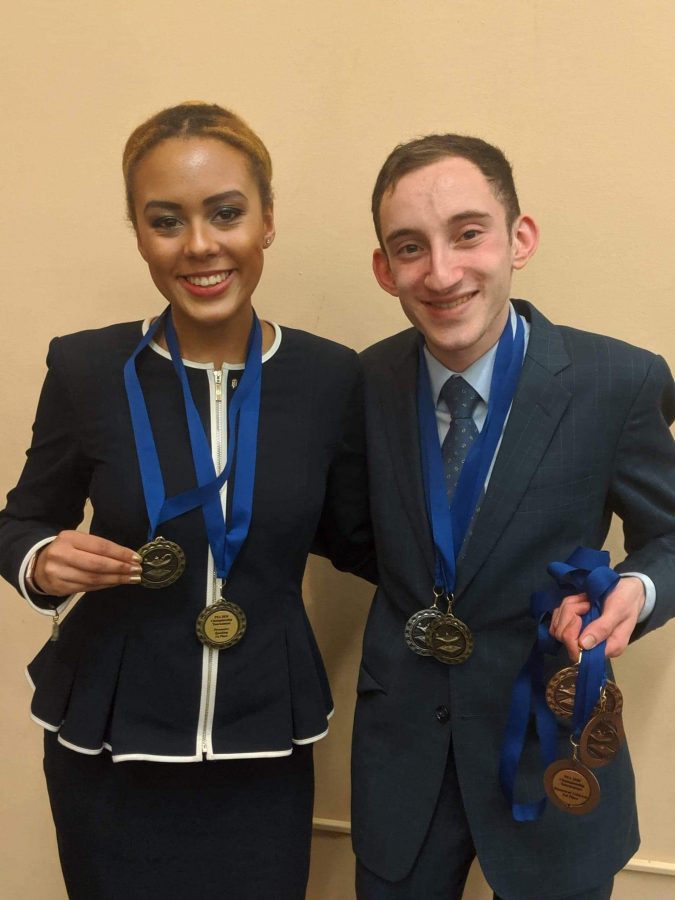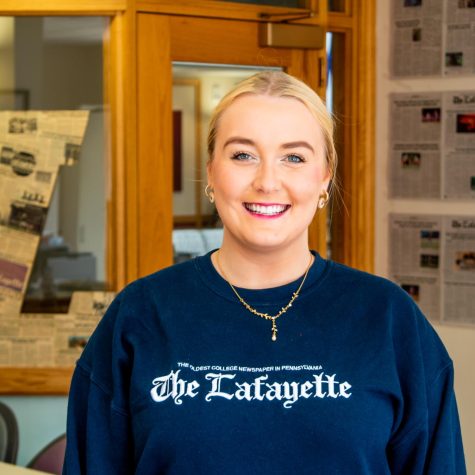Last Friday, Lafayette’s own Scott Kamen ’21 was awarded a place on the American Forensic Association’s All-American Team, one of the most prestigious awards offered in college forensics. Kamen is one of just nineteen students from across the country who were given the honor in 2021.
To secure his spot as an All-American, Kamen had to undergo a rigorous application process requiring the submission of transcripts, histories of forensic achievements, a resume of public service, letters of recommendation and a personal statement. Possible nominees must be college seniors, and they are evaluated on the basis of their scholastic achievement, community service and, of course, their success in forensics.
Kamen is the second Lafayette student afforded this distinction over two consecutive years, following Saeed Malami ’20, who received the honor last year.
“There are a few different national organizations, but the American Forensics Association, to my knowledge is the only one with a distinction, outside of competitive success,” he explained. “It’s a commemorative or an honorary team…but it’s an honor that we now have on our way out of the activity.”
Scott Placke, who has acted as Director of Forensic Activities since 2000, has been working with Kamen since the early days of his freshman year. He said that Kamen has likely “logged more hours” with him than anybody else on the team.
One of Kamen’s recommenders for the All-American Team, Placke describes Kamen as one of the “single most hardworking people I’ve ever met.”
He shared an anecdote about how Kamen readily restarted work on a persuasive speech at the tail-end of his tournament season freshman year, a project which would require exceptional exertion for a speech which Kamen could only use at three or four tournaments that season. For Placke, seeing his “tenacious fighter” of a student recognized in the Friday night ceremony gave a sense of “confirmation… that everyone else is able to see the same thing that you do.”
“I know I had a really big smile,” he said.
For Kamen, who has over seven years of experience in speech and debate starting in his sophomore year of high school, what he describes as the art of “making arguments…doing advocacy and…supporting it with evidence” has long been a labor of love. He said that his favorite event is persuasive speaking, or persuasion, which is “a 10 minute long, public address speech, where you are identifying a problem and you are going to explain that problem.”
Disability bias was the focus of his advocacy in this format, with his persuasive speech centered on “how hospitals sanction denial of care,” and how governments “protect doctors over patients with disabilities.” His work concludes with legislative and personal recommendations for combating disability bias.
It is an issue with personal significance for Kamen, who has a disabled family member. In addition to his work on the team, he has further brought his advocacy to the attention of Lafayette faculty and staff across departments by initiating conversations on the potential future of a disability studies program at Lafayette.
As a second-semester senior, Kamen will partake in two more events to finish off his college forensics career over the next few weeks. The team will be attending the National Forensics Association tournament, and Kamen will be attending the Interstate Oratory Association contest alongside teammate Kelly Mwaamba ’22. In this contest, the two will represent the state of Pennsylvania, and will ultimately have their persuasive speeches published.
Reflecting on his experience in forensics, Kamen said he hopes for a legacy beyond his competitive achievements.
“Not only have I embraced [forensics] with my full heart and soul, but something that is super important to the core of who I am is…to leave the activity and the individuals in it better than when I started,” he said. “And part of that has been, [on] both my high school team and the college team, setting us up for success in a number of ways, not just competitively, but in the relationships we build and…in the pedagogy that comes out of this.”























































































































